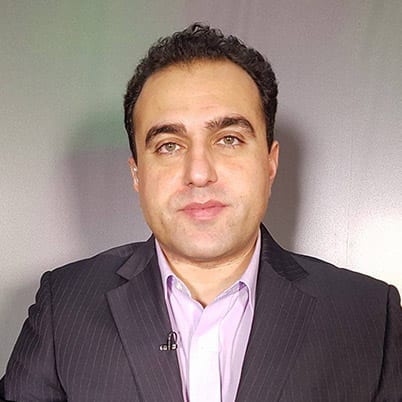Since early in the new year the Syrian Arab Army (SAA) and its allies have been conducting an offensive against the country’s last major rebel bastion in the north-western Idlib province. The offensive on Idlib was widely anticipated and its outcome is largely predetermined.
Idlib is not only the last major rebel redoubt, but it is also home to Syria’s last remaining genuinely independent rebel force. Whilst these forces are expected to resist fiercely, no one realistically expects them to defeat a major offensive by the SAA, backed up by Russian airpower.
The SAA’s campaign against Idlib coincides with Turkey’s inappropriately named operation “Olive Branch” designed to drive out Kurdish irredentists from Afrin. The geographic proximity of the two operations is indicative of the acutely contested space in the north-western corner of Syria.
More broadly, these operations speak to the formal beginning of a new phase of the Syrian conflict. Whilst this phase has been developing since the retaking of Aleppo in late December 2016, it is only now that its features can be clearly discerned. Its likely trajectory suggests the division of Syria into spheres of influence by rival powers.
Read: Syrian army presses offensive in last rebel stronghold of Idlib
These developments cast doubt on the proposed Russian-sponsored peace congress scheduled to be held shortly in the Black Sea resort of Sochi. Far from achieving “peace”, Sochi is likely to end up confirming the de-facto breakup of Syria.
Idlib: the final bastion
The fall of Idlib to Syrian rebels in late March 2015 arguably constituted the worst defeat inflicted on the Syrian regime in the conflict. The longevity of the rebel presence in the province speaks both to their determination and a degree of social and political acceptability by the local population.
But despite their resilience, and relative popularity, the rebel alliance in Idlib has been shunned by countries supportive of the Syrian rebellion, ostensibly on account of the dominant role of the al-Qaeda affiliate in Syria in that alliance.
The original Nusra Front has undergone two rebranding exercises in less than two years and is now known as Hayat Tahrir al-Sham (HTS). Whilst HTS is a coalition of hardline Islamist and Jihadist rebels, it is widely believed to be dominated by al-Qaeda in Syria.
Read: At least 23 killed in explosion in Syria’s Idlib
The HTS fiefdom in Idlib is the last remaining outpost for rebels genuinely committed to overthrowing the Syrian state and establishing a new political society. HTS’s resilience stands in stark contrast to the insincerity of pro-US rebels in the south, as well as the speedy collapse of Daesh’s bogus caliphate.
The Syrian regime’s advance on Idlib comes on the heels of an offensive on the extremity of Western Ghouta whose main focus was an HTS outpost in the Beit Jinn pocket near Mount Hermon. This successful offensive unfolded against a backdrop of an escalating siege on Eastern Ghouta.
The combination of these offensives strongly suggests that the Syrian regime, in tandem with its Russian ally, is determined to eradicate all rebel, jihadist and opposition presence in the entire western section of Syria, beginning from the western edge of the Syrian-Jordanian border, encompassing Quneitra, Damascus, Homs, Hama and Idlib and going all the way up to the edges of the north-western section of the border with Turkey.
Spheres of influence
The decisive move against Idlib could not be made without a degree of Turkish acquiescence. Whilst Turkey has formally protested against the offensive, and reports of potential default Turkish alignment with HTS notwithstanding, in practice Turkey will not impede the operation.
By extension, Turkey appears to have secured Russian acquiescence for its offensive against the Kurdistan Workers’ Party (PKK) aligned People’s Protection Units (YPG) forces in Afrin. The Syrian government’s threat to shoot down Turkish warplanes attacking YPG positions in Afrin is a hollow and deceptive gesture designed to conceal Syria’s weakness in the face of repeated violations of its sovereignty by multiple foreign powers.
The complex diplomatic games underway between Russia, Turkey and Syria in the north-west corner of the country is an indication of an emerging balance of power in that part of Syria. The removal of the YPG from Afrin and possibly from nearby Manbij as well, and the establishment of pro-Turkish rebels in the area, is not necessarily inimical to Syrian and Russian interests. The ouster of the YPG from these important areas weaken US influence and undermine Washington’s plans to shape the post-conflict landscape in eastern Syria.
Read: Syria’s Assad kills 7 children in 24 hours in Idlib
However, the broader YPG presence, and its ambitions to consolidate its proto-state over vast swathes of eastern and northern Syria is likely to be a major bone of contention in the months and years ahead. The YPG’s ambitions were given a shot in the arm by US plans to create a 30,000-strong “border force” to ostensibly combat Daesh penetration. In reality, this will be a YPG-led army intended to protect the PKK-aligned proto-state against its main adversaries, notably Turkey, the Syrian army, pro-Iranian militias and pro-Turkish Syrian rebels.
The Sochi Congress scheduled for the end of the month will be unfolding against this complex political, military and diplomatic backdrop. It is difficult to see what can be achieved as part of this process other than the affirmation of an uneasy and volatile balance of power. The prospect of fully restoring Syria’s sovereignty and territorial integrity is now more distant than ever.
The views expressed in this article belong to the author and do not necessarily reflect the editorial policy of Middle East Monitor.


![Civil defence team look for survivors after an air strike took place in Idlib, Syria on 2 January 2018 [Muaz Yemen/Anadolu Agency]](https://i0.wp.com/www.middleeastmonitor.com/wp-content/uploads/2018/01/20180105_2_27932726_29504290.jpg?fit=1200%2C800&ssl=1)









